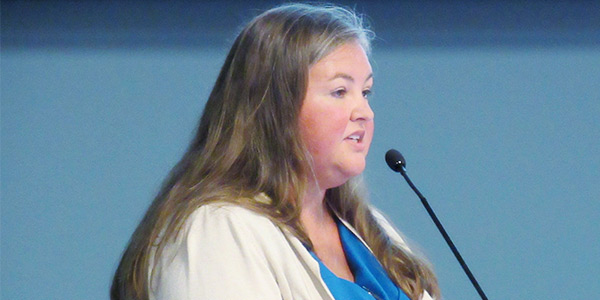By Amanda Durish Cook
CARMEL, Ind. — MISO filed new requirements on outage coordination last week despite the fact that some stakeholders still aren’t entirely sold on the plan.
The Wednesday filing seeks to impose new generator accreditation penalties for planned outages taken during what MISO deems “low-margin, high-risk periods” (ER19-915).
Speaking at a Reliability Subcommittee meeting Thursday, Jeanna Furnish of MISO’s outage coordination team said the plan will incent the forward scheduling of planned generation outages. She said the RTO is now revising its Business Practices Manual language to match the Tariff filing should FERC accept the proposal.
“Increasing forced outage rates for generation in the MISO region, together with a significant correlation in the timing of planned generator outages and derates, have caused resource risk outside of the traditional summer peak times. This has created a new paradigm, where generator owners can no longer simply schedule their outages around peak load times to avoid operating risk,” MISO explained in its filing.
The RTO’s proposal would require generation resources to provide 120 days’ notice for planned outages, although those scheduled 14 to 119 days in advance would be exempt from accreditation penalties provided they are scheduled during predefined periods with adequate margins. Penalties would apply to planned outages and derates scheduled fewer than 14 days in advance and occurring during a declared maximum generation emergency. The proposal also provides safe harbor provisions for resources if a planned outage is adjusted at MISO’s request.
MISO has also proposed a transition period for the new rules, which would exempt outages scheduled prior to April 1 from the accreditation penalty. Requests and revisions submitted April 1 or later for outages starting April 15 through July 29 would be exempt from the penalty if the request is submitted no later than 14 days in advance and MISO foresees “adequate projected margin at the time of the request.” The full set of outage requirements will go into effect for outages scheduled to start July 30 or later.
While the rules are considerably less strict than the ones MISO had originally proposed, some stakeholders were still calling for more lenient requirements up until the time of filing. (See Stakeholders Press MISO for Flexibility in Outage Proposal.) Other stakeholders were repeating calls for the RTO to improve its own load forecasting.
In comments to MISO, Ameren Missouri said the two weeks’ notice requirement should be reduced to just one week, “more commensurate with the load and weather forecasting accuracy.” DTE Energy also called for a seven-day notice requirement in addition to a request that MISO provide daily updates to its Maintenance Margin, a nonpublic member webpage that keeps a monthly forward account of how many megawatts can be taken out of service without affecting reliability.
At least one stakeholder still had bigger problems with the outage coordination proposal.
“Reforms have been focused solely on penalizing generation owners,” Exelon’s David Bloom wrote. “Instead, MISO and its stakeholders should continue to examine ways to improve MISO load forecasting or consider new or modified requirements to use existing tools like the Maintenance Margin.”
Exelon also criticized MISO’s requirement to count a full 24 hours of a planned outage as forced when it is scheduled without the two-week notice and during a generation emergency, even when emergency conditions persist for shorter periods. The proposal is still “unduly punitive,” Exelon said. MISO’s proposal assesses a forced outage penalty against resource accreditation for a minimum of 24 hours or the overlap between an outage scheduled without the two-week notice and emergency conditions, whichever is greater.





